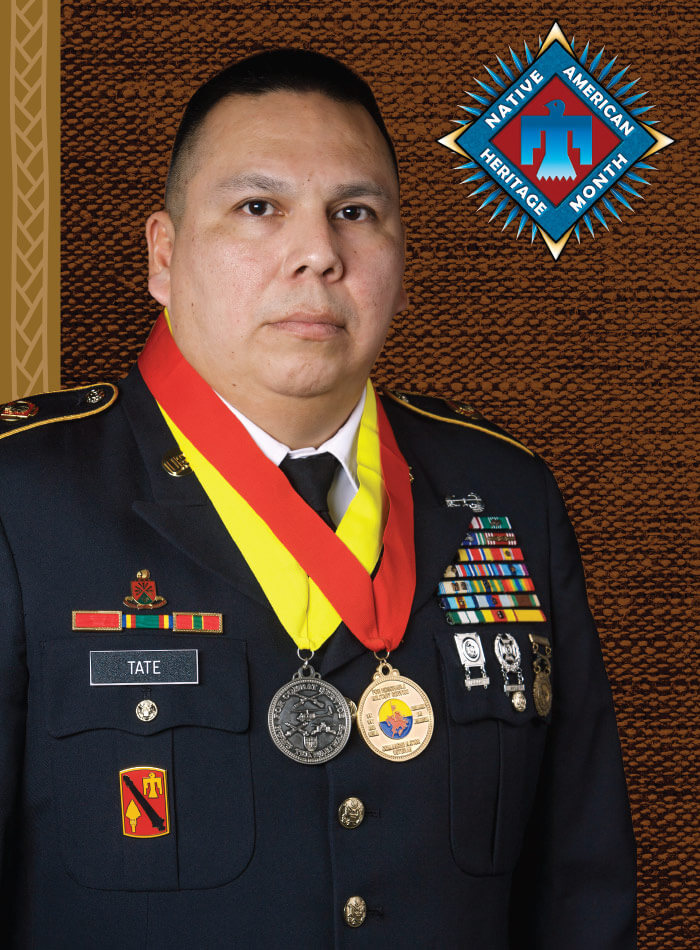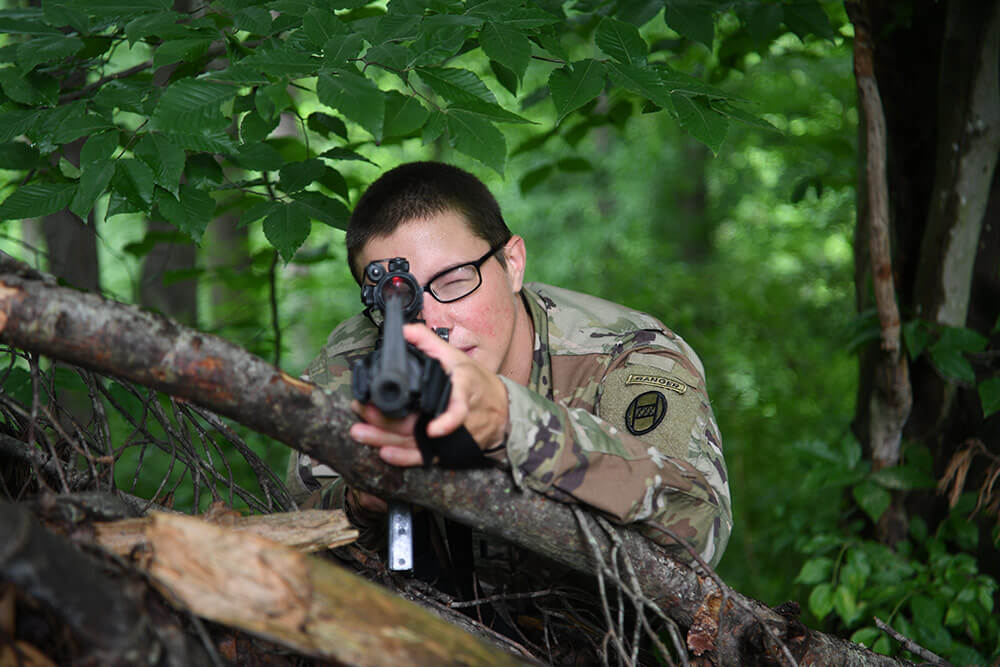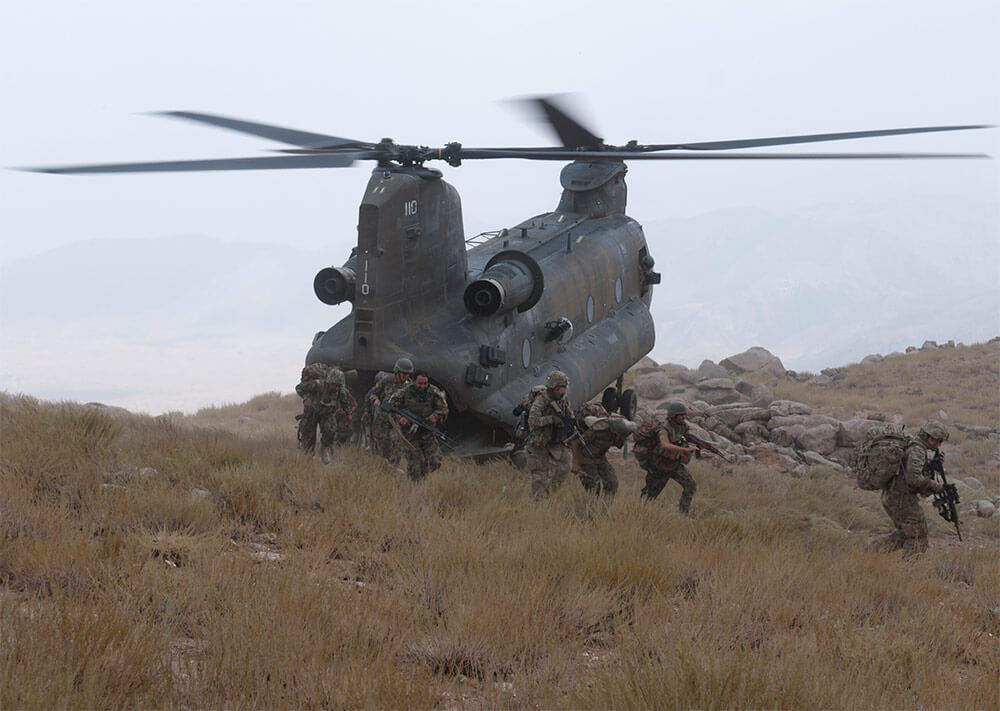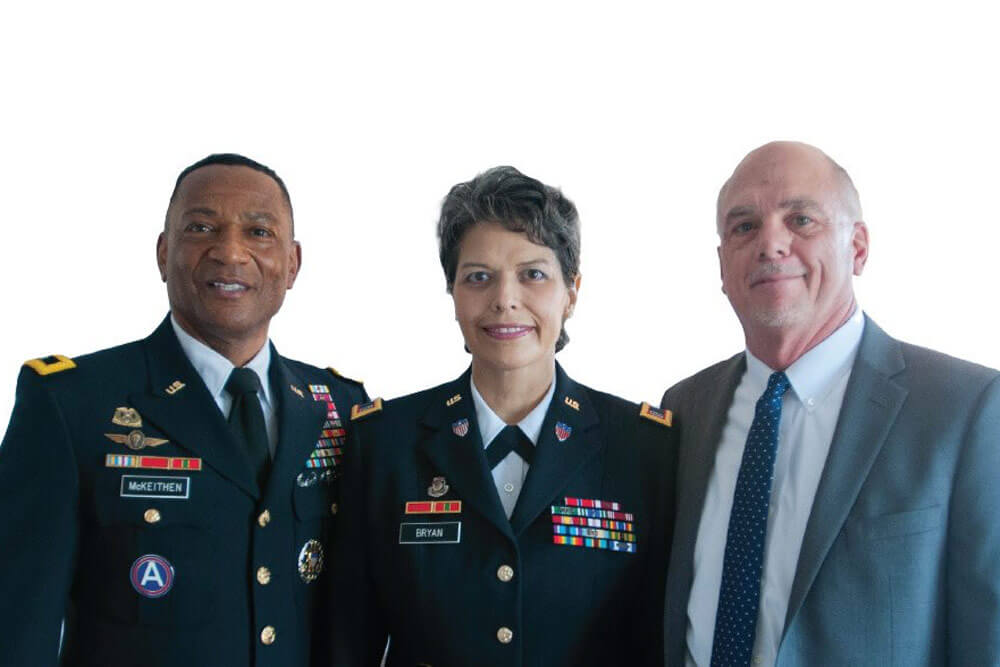1SG Paul Tate, Oklahoma Guard Soldier and Comanche Tribal Member, Gives Insight into Warrior Ethos and Military Service
The various tribes represented by Native American Oklahoma National Guard members are moving forward, connecting traditional tribal knowledge and culture with the broader U.S. culture. One way they make this connection is through military and community service, which has been a foundation for tribal organizations for hundreds of years.
1SG Paul Tate, Headquarters Company, Joint Force Headquarters, Oklahoma National Guard, is Comanche and Kiowa and he comes from a Family of servicemen. He reflected on how his Native American traditions and beliefs were naturally incorporated into his career as a member of the Oklahoma Army National Guard.
“I’m on the Comanche roll as a Comanche Male, and I lean toward the Comanche side,” said 1SG Tate, noting his connection to both Comanche and Kiowa. “Each tribe is different. So that’s how it works – two different languages, two different societies and almost two beliefs in a way. Most of the time, I spent my summer with my Comanche uncle in Fletcher, Okla. – my Uncle Joseph Leaf and Aunt Winifred. I would spend time out in the woods hunting, playing – doing what little kids do.”
1SG Tate, who was born in the Indian Hospital at Lawton, Okla., next to the old Fort Sill Indian school, said his father and his father’s brothers and sisters were sent to St. Patrick’s Catholic Mission in Anadarko, where they were forbidden to speak their native language. His mother, on the other hand, attended public school and her mother, 1SG Tate’s grandmother – a hairdresser and a seamstress – had land in Fort Cobb. Her father was James Two Hatchet (Kiowa), a Baptist pastor who attended Haskell Indian College and a landowner. It was there that 1SG Tate said he learned his work ethic.
“My grandmother raised all the kids there,” said 1SG Tate. “I remember growing up farming with my dad. We would fix fences, work cattle, raise wheat, bale hay – all that hard work that came along with farming. I figured if they can make it, I can make it. Now times are different. It’s not considered cool to go without things. But I have done it. Before I joined the Active Guard Reserve program, I hitchhiked to work for maybe four or five months, but I never missed work. I was working second shift and getting home late at night. I didn’t know how I was going to do it, but I was going to make it home somehow. But that’s what I took from it: my grandma can do it, and I should be able to do it, too.”
Growing up with his cousins, 1SG Tate listened to World War II and Vietnam stories. The patriotism and military service of his father and his uncles heavily influenced him. His father and all his uncles from both sides were in the military – serving in Special Forces, Airborne units and in the Air Force and Marines. His maternal grandfather was awarded a Silver Star in WWII. He joined the U.S. Army in August 1991 and asked to be put into the infantry, but he was assigned to supply because of a drawdown at the time.
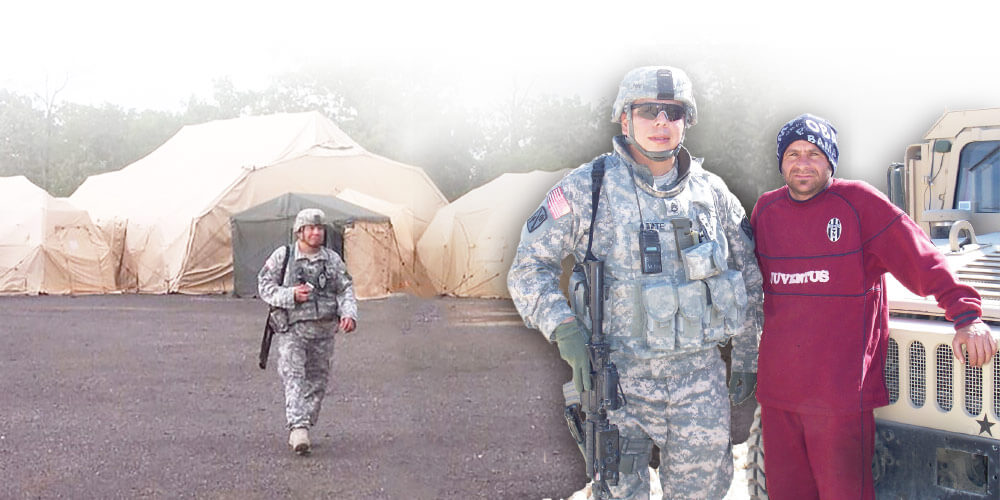
“I didn’t know what supply was,” said 1SG Tate. “Reluctantly, I signed up, but I’m glad I did. In the overall scheme of things, it’s helped me. As a Readiness NCO, you have to have a supply sergeant and administrative personnel. I’ve done admin. I’m doing readiness and I’ve done supply, so I understand all three positions.”
He deployed to Operation Iraqi Freedom in 2008-2009 with the 158th Field Artillery, Oklahoma Army National Guard. There, he served as a squad leader, running an entrance checkpoint on the Ogden Gate.
“At that time,” said 1SG Tate, “There were no x-ray machines and no dogs. The gate was very busy as the exit and entrance point for mostly military vehicles and the Iraqi police.” He said the team depended heavily on each other. “We still keep in touch all the time.”
To keep his team focused and alert, 1SG Tate kept his guys close together: working out together, eating together and attending church together. He also rotated the sergeant of the guard position among them to give them experience and keep them sharp.
“They would plan it from who was to be on shift, to what positions they would be in, what HMMWV we were going to ride to get out there, who was going to pick up chow, who was going to do the refills and so forth,” said 1SG Tate. “They would make the decisions and I would go with it. That was the cohesion – I trusted them and they trusted me. I would sit out at Recon in my eight-hour shift, listening to them calling different things in and letting them make the decisions, and 99 percent of the time they were the right decisions.”
“That kind of kept their mindset, and it kept the unit intact; they knew that they were not just an E-4 or E-5 or a junior E-6 or something like that. They were always a part of the group and their decision mattered. I tried to foster that as much as possible,” noted 1SG Tate.
“I’ve seen leadership where they scare Soldiers so much that they are afraid to do some things, and I never wanted to be that person. My deal is: get them trained, get their trust, get them out there and we will do the right thing together or we are going to absorb it as a group.”
He is proud of the professional performance of his team during the deployment. “We did what we were supposed to do,” said 1SG Tate. “We didn’t take anything to extremes. We were always respectful to the Iraqis. If they were standing out there, we would give them water. We’d give them drinks, anything we had. We would give it to them and talk to them, or try to talk to them through a translator, and let them know what was going on. That was the respectful thing, and I think that had a lot to do with our success. It goes back to understanding the Native American tribes. The Iraqis are just different people. They are trying to do something that we don’t understand, but let them do their thing. Let them do it. We are only here to do our job; this is our job, and that’s all they are asking us to do. Then we can go back and do what we need to do.”
In closing, 1SG Tate talked about the importance of perspective, regardless of heritage.
1SG Tate concluded, “Often when I reach what I think is a tough time, I always think that it could be worse. You know, you could not have heat or food. You could be starving. Many people have it a lot worse. Going overseas to Iraq – seeing how bad they had it over there – they didn’t even have electricity in half the places. Those are the little things that put it all into perspective.”
By Contributing Writer MSG Claudia L. Burcham
Photos by SFC Kendall James, OKLAHOMA NATIONAL GUARD
